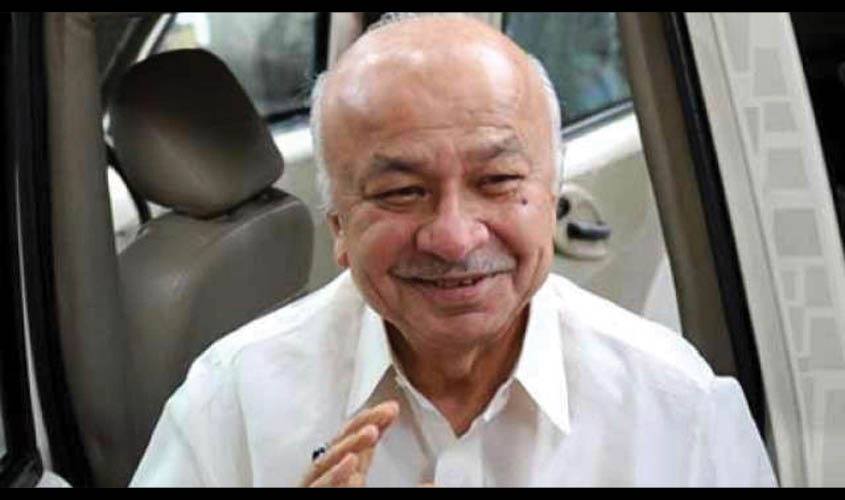New Delhi: Discussions have reached the conclusive stage for selecting the next Congress president as Rahul Gandhi’s successor, notwithstanding the theatre of the absurd being enacted by the grand old party, with over 140 office bearers, mostly nondescript politicians, tendering their resignation to share responsibility for the 2019 defeat. In fact, “the resignation drama” has brought to the fore fault-lines within the organisation which is appearing to be divided, with seniors on one side and the younger lot on the other side. Interestingly, none of the members of the unelected Working Committee— which is to take the final decision on accepting Rahul Gandhi’s request to be relieved of his position—have put in their papers.
Conscious of the crisis that has gripped the party, the central leadership has narrowed down its choice to former Home Minister, Sushil Kumar Shinde, to succeed Rahul Gandhi, though other names, including those of Mallikarjun Kharge, Ghulam Nabi Azad, Ashok Gehlot, Janardhan Dwivedi and A.K. Antony, besides Mukul Wasnik, too, are under consideration. On Saturday afternoon, Shinde is understood to have met Rahul Gandhi and if he receives the clearance, he would be the collective choice of the Gandhis.
There is a general agreement within the family and their key advisers that a senior and seasoned politician and party loyalist should be given the charge. Although Priyanka Vadra is out of the country with her family, before any announcement is made, her opinion in the matter would be decisively factored in. Shinde is viewed as someone who has no overriding ambition and
in the past has always followed directions down to the last letter. He was the party’s nominee for Vice Presidentship against Bhairon Singh Shekhawat and was appointed Governor of Andhra Pradesh so as to enable Vilasrao Deshmukh to once again be elected as the Maharashtra Chief Minister. Subsequently, he moved to the Centre holding important portfolios such as Home and Power.
Although Shinde lost the recent Lok Sabha polls, yet he is in the contention because of the forthcoming elections in Maharashtra. There are multiple reasons why he could actually emerge as the winner—he is a strong Dalit face who also enjoys a grand rapport with NCP Chief Sharad Pawar. He is also the one person who may manage to convince Pawar to merge the NCP with the Congress so as to enable the party to qualify for the position of the leader of opposition in the Lok Sabha.
However, those who are familiar with Pawar’s style of functioning believe that the merger would entail some clarifications on financial aspects since the NCP is in possession of large amount of funds in its party account. Secondly, the Maratha strongman had earlier told Rahul Gandhi that the matter could only move forward if he was provided with the categorical assurance that his daughter, Supriya Sule, would become the president of the Maharashtra Congress and subsequently be projected as the next Chief Minister. These complex matters would have to be addressed if the unification move has to go ahead.
During a series of meetings Sonia Gandhi and Rahul Gandhi had with other functionaries, Rajasthan Chief Minister Ashok Gehlot’s name also figured as a contender for the party president’s post. A key-aide of Sonia advised her that if Gehlot was to be nominated as the Congress head, Sachin Pilot would take over as the chief minister—something which would not be in Rahul Gandhi’s overall interest to have a young CM in a pivotal state.
Kharge, who was the leader of the Congress in the last Lok Sabha, was amongst the potential candidates. However, he may have lost out because the Gandhis felt that as the Lok Sabha leader, he acted rather too independently on some matters, without engaging in consultations with them. Ghulam Nabi Azad’s name came up, but the question that arose was that despite being exceptionally competent, appointing a Muslim would send a wrong message, given that the BJP was consistently overplaying its Hindutva card. Antony has opted out of the race. So far as Janardhan Dwivedi is concerned, over the past few months, he has more or less withdrawn himself for active politics, and therefore may not remain in the race.
The immediate and foremost task before the Congress High Command is to somehow ensure that a clear division between the seasoned lot and new comers does not reach an escalated pitch. At this juncture, the party cannot afford to be weakened by disunity and discord of this nature. The organisation has to be rebuilt, and this is where the role of a new president would come in.
There have been a handful of seniors who have been in constant touch with the BJP leadership and so are more than willing to jump ship. The reason why the High Command chose Adhir Ranjan Chowdhury, over many others, to be the leader in the Lok Sabha, was because he is most unlikely to cross over to the BJP. There have been unconfirmed reports that a senior leader of the Upper House as well as the wife of a former Congress Chief Minister, have held a few meetings with some top BJP leaders. However, the saffron party has put in abeyance any decision regarding their entry. The BJP has shown a marked inclination to spur on Congress leaders to revolt against the Gandhis, and form their own party, with which subsequently they could enter into a political partnership. The Congress needs to take quick and unyielding decisions so as to halt the drift and not become rudderless.

